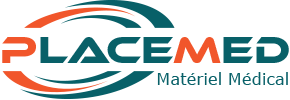Medical software

To help you make the best choice, do not hesitate to check out our selection on Amazon via this link:
What is medical software?
Medical software is a technological tool designed to enhance, optimize, and simplify the practice of medicine. It is a computer solution that assists healthcare professionals in various tasks, ranging from patient record management to appointment scheduling, to medical data analysis.
Medical software can also enable the implementation of telemedicine, a growing field that offers remote consultations, thereby making medical care more accessible and effective. Furthermore, through medical imaging software, doctors can visualize and interpret high-quality diagnostic images.
In modern medicine, the importance of medical software cannot be overstated. It offers a variety of benefits, such as improving operational efficiency, reducing medical errors, increasing the accuracy of diagnoses and treatments, and facilitating coordination and communication among different care providers.
Types of medical software
In the world of modern medicine, medical software plays a central role in helping healthcare professionals deliver quality care. Among these digital tools, there are different categories, each designed to meet specific needs:
Electronic Health Record (EHR) Software
These are systems for the electronic management of a patient's medical information. They provide quick and secure access to medical history, prescribed medications, allergies, and other relevant data. These software solutions promote better patient care by centralizing their health information.
Medical imaging software
They provide doctors with the means to visualize, analyze, and interpret diagnostic images such as X-rays, MRIs, and ultrasounds. These tools facilitate accurate disease detection, help track the progression of a condition, and contribute to the development of appropriate treatment plans.
Practice management software
These software solutions simplify the administrative workflow of a medical practice. They can handle appointment scheduling, billing, inventory management, and other management tasks, allowing healthcare professionals to focus more on patient care.
Telemedicine software
They enable remote consultations between healthcare professionals and patients. They promote accessibility to care, especially for people living in isolated areas, and allow for regular monitoring without the need for frequent travel.
Others
Other types of software, such as clinical decision support software, use artificial intelligence to analyze patient data and provide evidence-based care recommendations.
When comparing these different types of medical software, each has its advantages and disadvantages. For example, while telemedicine software improves access to care, it may also present challenges in terms of data security. Clinical decision support software, although helpful, does not replace a physician's clinical judgment. In any case, the choice of software depends on the specific needs of the medical practice.
Key features of medical software
Medical software, with its advanced technology and multiple features, transforms and optimizes the way healthcare is provided. Here are some key features offered by these software tools:
Medical record management
Medical software provides an efficient solution for storing, organizing, and accessing patient medical records. This ensures that all relevant information, such as medical history, test results, and prescriptions, is easily accessible and updated in real time.
Appointment scheduling and tracking
Medical software can streamline appointment scheduling, avoiding double bookings and missed appointments. They also enable consistent tracking of consultations, with easy access to the patient's visit history.
Integration of imaging and laboratory tests
The results of imaging and laboratory tests can be directly integrated into the patient's medical record. This facilitates interpretation and follow-up of results, aiding informed clinical decision-making.
Secure information sharing with other healthcare professionals
Medical software allows for secure and efficient sharing of information among different healthcare providers, ensuring smooth communication and optimal care coordination.
Billing and payment management functions
Managing invoices and payments can often be time-consuming for healthcare professionals. Medical software offers features that automate these processes, making billing more accurate and less laborious.
Selecting and using medical software
When it comes to choosing and using medical software, several factors should be considered to ensure successful integration and efficient use.
- Criteria to consider when selecting medical software: Several criteria should guide your choice. First, make sure that the software meets your specific needs in terms of features. Also, consider the software's usability, compatibility with your existing infrastructure, and compliance with data security standards. Finally, cost and after-sales service are also important factors to evaluate.
- Installation and implementation process: Installing medical software can be complex and often requires the assistance of an IT professional. The process typically involves software installation, configuration of settings based on user needs, migration of existing data, and implementation of necessary security measures.
- Training required for software usage: To maximize the effectiveness of using the software, proper training is essential. This training can be provided by the software vendor or a third-party expert and should cover not only basic functionalities but also updates and advanced features.
 Francais
Francais 
 Quote
Quote  Cart
Cart 




